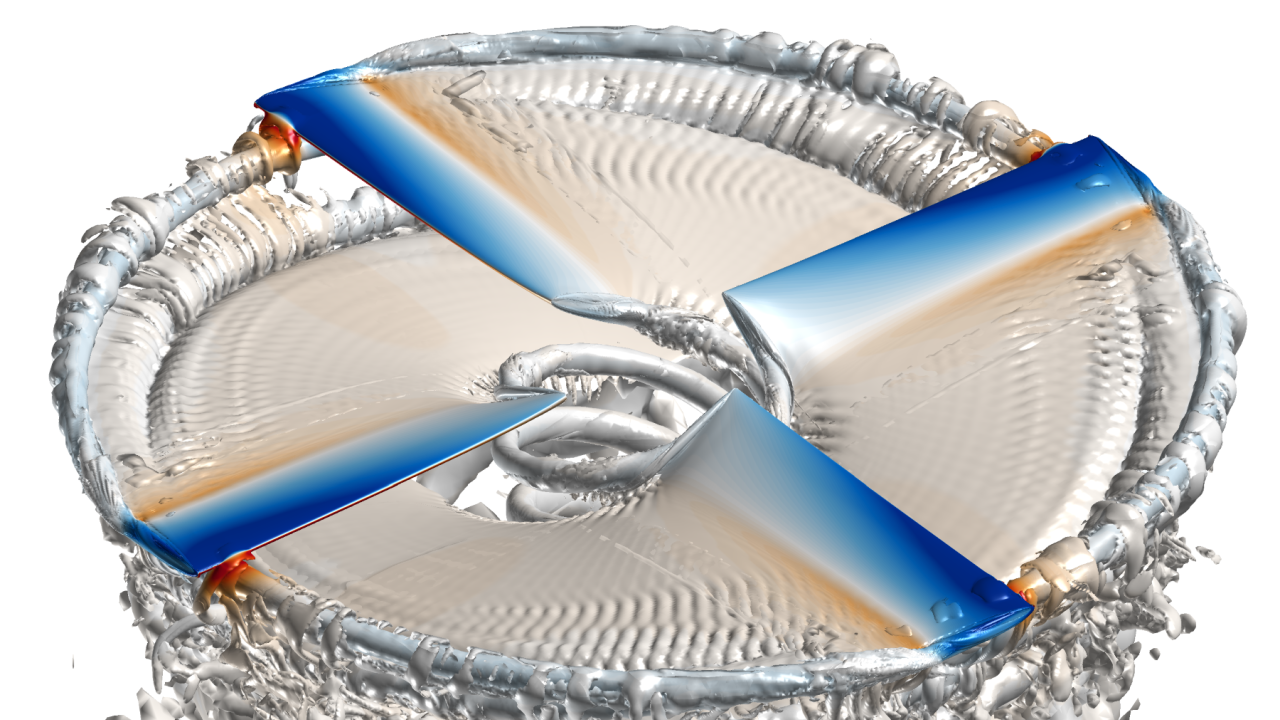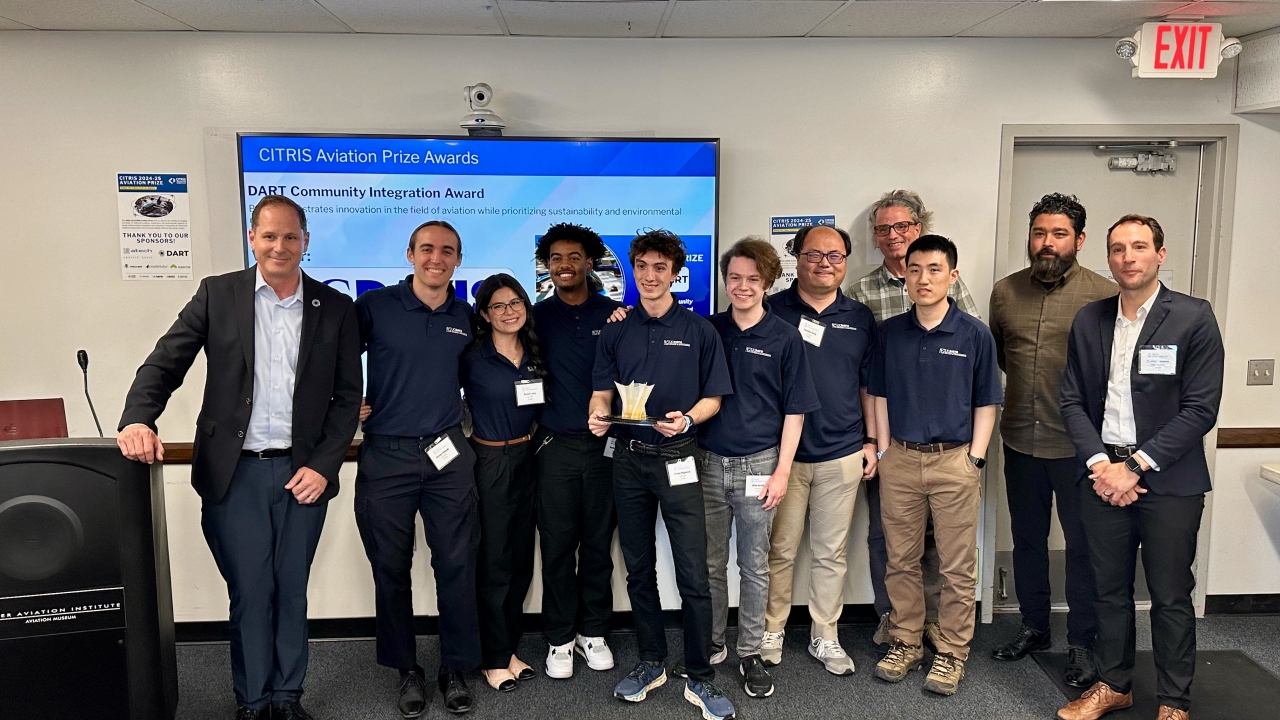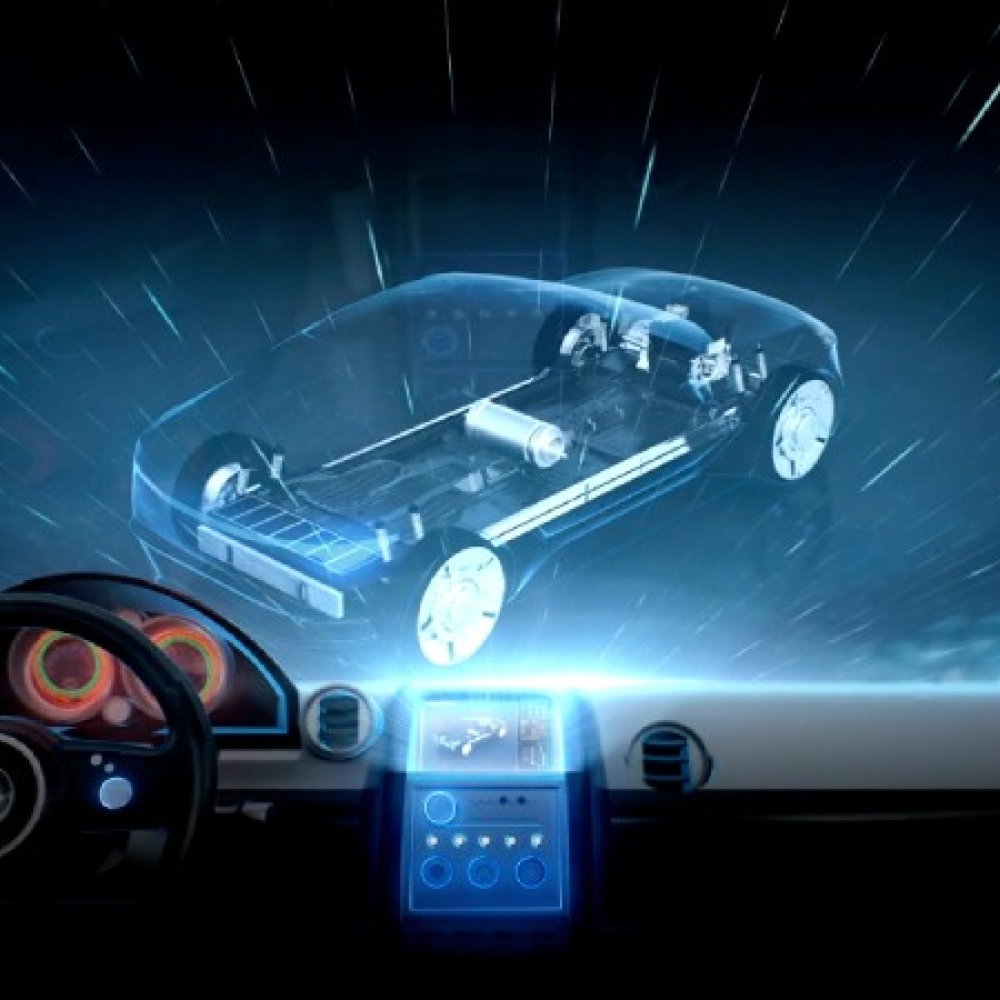We lead the development of future transportation systems for movement across land, water, air and extraterrestrial environments.
Our networks for moving people, goods and physical services across land, water, air and space will change drastically by mid-century. From urban air taxis to the frontiers of human space flight, we will need optimized networks of vehicles that communicate with one another for safe, smooth delivery and function. Autonomous vehicles must be designed with appropriate human factors and human-machine teaming interfaces, while alternative energy sources, propulsion and control systems will be critical to slowing the effects of climate change.
Horizon Lines
Building a Living-Learning Lab for Sustainable Transportation Research
Associate Professor of Civil and Environmental Engineering Kari Watkins leads a project to turn the UC Davis campus into the world’s premier living-learning lab for researching bike and bus infrastructure.
Research in Action
UC Davis to Develop Groundbreaking Urban Air Mobility Technology for International Research Center
From Concept to Cockpit: UC Davis Team Wins Big at CITRIS Aviation Prize
EPA Removal of Vehicle Emissions Limits Won’t Stop Shift to Electric Vehicles, but Will Make it Harder, Slower and More Expensive
Harnessing UC Davis’ Power of Collaboration
Transforming Mobility
- The Institute of Transportation Studies is the world’s leading university center on sustainable transportation, managing large research initiatives on energy, environmental and social issues
- The Center for Spaceflight Research takes a transdisciplinary approach to investigate all aspects of human spaceflight, from engineering to computer science to chemistry
- The Plug-In Hybrid & Electric Vehicle Research Center collaborates closely with California utilities, the Electric Power Research Institute, automakers, and other institutions to develop a sustainable market for plug-in vehicles
Engineering a better world calls for solutions of a different caliber, demanding innovation across disciplines using a design-centric approach.
We employ and develop intelligent systems and automation, tools at the nano-and-micro- scales and engineering for all that will revolutionize energy systems, strengthen climate resilience, advance human health and transform mobility to bring a sustainable, healthier and more resilient world within reach.









